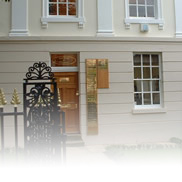
Find by month
Find by label
Blog
The use of expert evidence in fast track and multi-track cases
09 Jun 2008, 15:17 by Kate Richards
Labels: barristers, civil, evidence, expert, fast-track, judge, multi-track, solicitors
"Expert witnesses perform a vital role in civil litigation. It is essential that both those who instruct experts and experts themselves are given clear guidance as to what they are expected to do in civil proceedings."
This blog will aim to provide a summary of what is required by barristers and solicitors who are instructed on fast track or multi-track cases involving experts.
The first thing to bear in mind when an expert has been instructed is that generally expert evidence will be presented in a written report. This is unless the court directs otherwise. For claims allocated to the fast track an expert witness is not required to attend court unless it is necessary in the interests of justice. In particular, the court will have regard to the proportionality of the cost of attendance of the expert(s) to the value and complexity of the claim. Written questions may be put to the expert within 28 days of the service of the report. It is important to note that these questions must be for clarification purposes only unless by permission of the court or consent of the other party.
Usually a single joint expert will be appointed in fast track cases. However, in multi-track cases the appointment of separate experts is often appropriate where there are a number of substantial issues. For example, this can be particularly appropriate in clinical negligence cases where there may be two schools of thought concerning the medical issues involved.
Where expert evidence is required to be given orally at court the general principles governing witness handling are fundamental. Specifically with expert evidence there may be matters that are extremely complex in nature and parts of a report which are unintelligible. One of the main jobs for the advocate in asking supplementary questions in examination-in-chief should therefore be to ensure that the Judge can understand the expert's evidence!
In cross-examination of an expert witness an effective way of challenging their evidence is to prove that they are outside their expertise or that they are incompetent. It is also essential to dispute the validity of any inferences drawn in the formation of an expert opinion. One way of achieving this may be to identify the facts and instructions upon which the expert's evidence is based and demonstrate the falsity of these, thus in turn undermining the opinion. Unlike most other evidence, expert evidence usually requires re-examination. Clarification is often required given the likelihood for misunderstanding what has been stated in cross-examination.
Most importantly, in all civil cases where expert evidence is required mastery of the subject matter of the expertise is vital. A conference with the expert prior to the hearing can be a useful method of explaining areas of unfamiliarity.
Written by K Richards.
The New Walk Chambers Blog page is only intended to provide an accessible forum for a general overview and discussion of the topics posted on it. It is not meant to be a substitute for taking legal advice in any particular situation and should not be so used. Neither New Walk Chambers nor the author(s) accept any responsibility for anything done or not done on the basis of the contents of the Blog page.


Publish this article to: